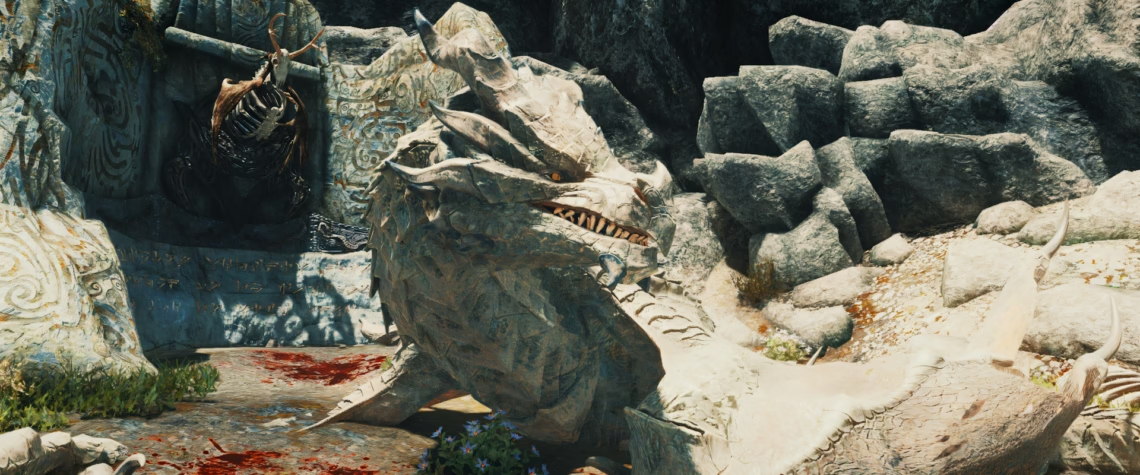Over 12 years after its release on November 11, 2011, The Elder Scrolls V: Skyrim continues to captivate gamers worldwide, achieving something remarkable in the fast-paced gaming industry: immortality.
On that day, a dragon roared, and the world changed.
Its launch shattered Steam records with 280,000 concurrent players in 24 hours, selling millions in its first week.
This wasn’t just a game; it became a cultural phenomenon, absorbing players into its vast, snow-swept land of Tamriel and promising boundless adventure.
Most games fade after their moment in the spotlight, yielding to the next big release. But Skyrim? Skyrim simply refuses to die.
Bethesda has played a significant role with a relentless string of re-releases that borders on meme-worthy, yet ensures its perpetual presence.
This was not merely porting but a deliberate commercial strategy from Bethesda, capitalizing on its popularity and ensuring it remained a constant presence.
By expanding to virtually every modern platform, they created multiple entry points for new generations of players.
Yet, the true secret to Skyrim’s immortality isn’t just Bethesda’s re-releases.
The boundless creativity of its modding culture deserves much credit for the game’s resurrection cycle.
The community has transformed Skyrim from a great game into an infinite canvas. With over 60,000 mods available on Nexus Mods alone, players continue reinventing the game.
Beyond visuals, modders have introduced deep survival mechanics, new questlines, companions, combat systems, and even total conversions that rebuild entire Elder Scrolls games within Skyrim’s engine.
This constant evolution fuels the return loop, an undeniable gravitational pull that draws players back year after year.
The game’s active player base remains staggering; on Steam alone, thousands of adventurers roam Tamriel’s frozen north daily, with concurrent players regularly rivaling many newer releases.
This dedication spans platforms, demonstrating Skyrim’s universal appeal.
Why do so many players consider it their “comfort game,” their digital home away from home?
It’s the unparalleled freedom and roleplaying potential. You can ignore the main quest, spend hundreds exploring every hidden cave, build a cozy homestead, or simply wander the vast, diverse landscapes from the snowy peaks of the Throat of the World to the eerie swamps of Hjaalmarch.
Every new character, every different build, every choice creates a unique story.
It’s a low-stress escape, a familiar world where you are truly the master of your destiny, providing comfort and endless discovery.
Ultimately, Skyrim is more than just a game; it is a canvas. Its robust engine and flexible design provide the perfect foundation for players to project their desires, stories, and creativity.
It’s a digital sandbox where your imagination is the limit, allowing you to craft the adventure you want, not just the one the developers intended.
From becoming a master alchemist to a legendary dragon hunter, or from a stealthy assassin to a compassionate healer, Skyrim provides the tools for self-expression within a rich, established world.
Skyrim’s refusal to die stems from its perfect storm of accessible gameplay, rich lore, and virtually infinite replayability.
It is a testament to exceptional game design and community dedication, a true immortal of the gaming world.
Perhaps Skyrim didn’t survive despite time, but because of it. Each passing year, it offers a game and an enriching experience that appeals to our sense of adventure and creativity.
And maybe that’s why we always come back.
Because Skyrim doesn’t tell you who to be.
You tell the story.
Be a wandering alchemist.
A werewolf bard.
A kleptomaniac mage.
Or just a guy who lives in a cabin and fishes.
There’s no wrong way.
The main quest? Ignore it.
The civil war? Maybe next time.
You can spend 100 hours doing nothing of consequence…
And still feel like you lived something real.
Skyrim may not be perfect.
Its AI is janky.
Its quests can glitch.
Its animations are often cursed.
And still, it survives.
Not because it’s flawless…
But because it gives us freedom.
Because it gives us stories.
And in those stories, we find ourselves.
So no, Skyrim didn’t survive despite the years.
It survived because of them.
Because year after year… we keep coming back.
To walk those roads. To hear that music.
To shout into the mountains once more:
“Fus Ro Dah.”


